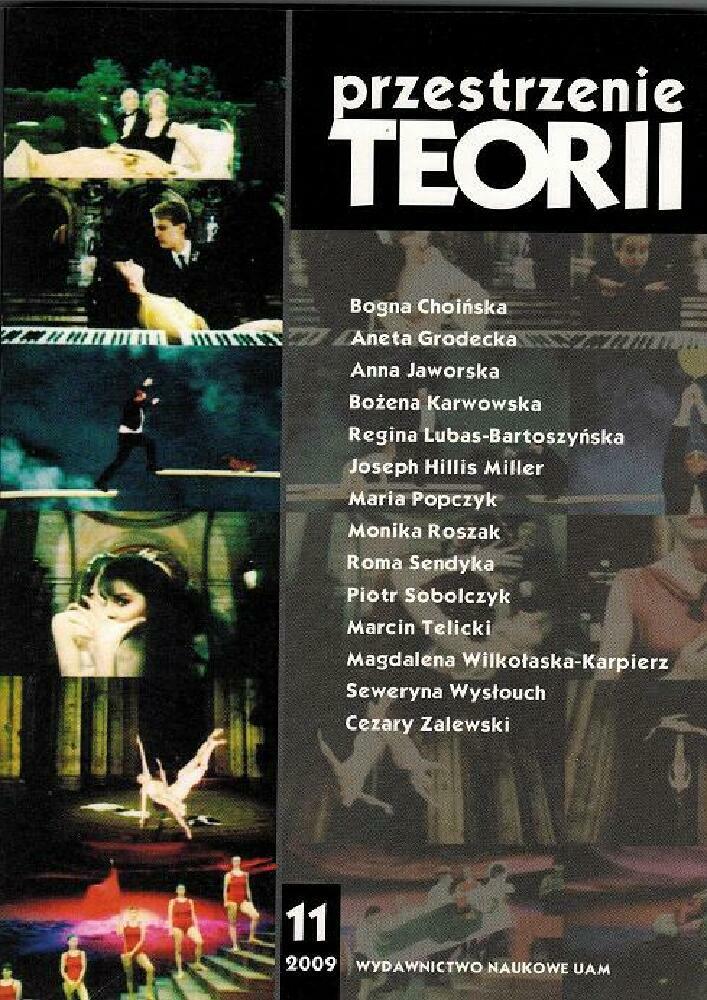Abstract
The aim of my article is to present "the liar's paradox" from a non empirical perspective of the language. The paradox may be as though "resolved" (but in just another way then it is done within the semantics view by Tarski), among other things, thanks to Lacan's psychoanalysis. Namely "the liar's paradox" which is connected with a division between a statement and an enunciation is treated by Lacan as accompanying a subject during his (her) process of gaining a certainty about himself (herself) and about the world and as impossible to overcome in a traditional way. The problem of "liar's paradox" may be merely suppressed. An attempt of suppressing of a nonsense took place, according to Lacan and Foucault, within the area of "Meditations" by Descartes and maybe more in their modern interpretations. The non empirical proposition of an elimination "the liar's paradox" consists in an acceptance of the madness (as defined by Foucault) and at the same time in staying in a surface of some texts. This strategy does not allow to divide talking in two: the language and the meta-language. Moreover I try to discuss with Żiżek concept concerning with an incomprehension this problem (mainly the usage of the meta-language) by Derrida.References
G. Vattimo, Hermeneutyka - nowa koine, „Teksty Drugie” 1996, nr 1.
P. Dybel, Czy psychoanaliza Lacana jest hermeneutyką?, w: H. Lang, Język i nieświadomość. Podstawy teorii psychoanalitycznej Jacques’a Lacana, tłum. P. Dybel, Gdańsk 2005.
A. Tarski, Pisma logiczno-filozoficzne, t. 1, Warszawa 1995.
P. Dybel, Czy psychoanaliza Lacana jest hermeneutyką?, w: H. Lang, Język i nieświadomość. Podstawy teorii psychoanalitycznej Jacques’a Lacana, tłum. P. Dybel, Gdańsk 2005.
A. Tarski, Pisma logiczno-filozoficzne, t. 1, Warszawa 1995.
A. Easthope, Lacanowska interpretacja Kartezjusza, „Ruch Filozoficzny – Nowa Seria” 2000, nr 3 (35).
A. Bielik-Robson, Słowo i trauma: Czas, narracja, tożsamość, w: Formy reprezentacji umysłowych, red. R. Piłat i in., Warszawa 2006.
J. Lacan, Funkcja i pole mówienia i mowy w psychoanalizie, tłum. B. Gorczyca, W. Grajewski, Warszawa 1996.
S. Żiżek, 'Wzniosły obiekt ideologii, tłum. J. Bator, P. Dybel, Wrocław 2001.
K. Michalski, Heidegger i filozofia współczesna, Warszawa 1978.
M. Foucault, Historia szaleństwa w dobie klasycyzmu, tłum. H. Kęszycka, Warszawa 1987.
P. Dybel, Podmiot nieświadomości. Pojęcie podmiotu w psychoanalizie Jacques’a Lacana na tle tradycji filozofii kartezjańskiej, „Przegląd Filozoficzny - Nowa Seria” 2000, nr 3 (35).
M.P. Markowski, Z powrotem do Lacana!, „Literatura na Świecie” 2003, nr 3/4.
J. Kutyła, Jak czytać coś, czego nie ma, by coś z tego jednak było?, w: S. Żiżek, Lacan. Przewodnik krytyki politycznej, tłum. J. Kutyła, Warszawa 2008, s. 9.
M.P. Markowski, Nietzsche i hermeneutyka, „Teksty Drugie” 1996, nr 1.
P. Dybel, Derrida i Lacan: spór dwóch żaków o fallusa, „Literatura na Świecie” 2003, nr 3/4.
M. Mizuro, Dekonstrukcja jako strategia interpretacji, „Prace Literackie” 1998, nr 36.
L. Wittgenstein, Traktat logiczno-filozoficzny, tłum. B. Wolniewicz, Warszawa 1977.
D. Pears, Wittgenstein, tłum. K. i J. Gurczyńscy, Warszawa 1999.
S. Morawski, Mimesis i hiperrealizm, w: Mimesis w literaturze, kulturze, sztuce, red. Z. Mitosek, Warszawa 1992.
V.B. Leitch, Hermeneutyka, semiotyka i dekonstrukcjonizm, „Pamiętnik Literacki” 1986, z. 3.
C. Rowiński, Dlaczego Rimbaud przestał pisać?, w: tegoż, Przestrzeń logosu i czas historii, Warszawa 1984.
E. Roudinesco, Jacques Lacan. Jego życie i myśl, tłum. R. Reszke, Warszawa 2005.
S. Schneiderman, Jacques Lacan. Śmierć intelektualnego bohatera, tłum. Ł. Mokrosiński, Warszawa 2004.
License
Authors
Authors of texts accepted for publication in Przestrzenie Teorii are required to complete, sign and return to the editor's office the Agreement for granting a royalty-free license to works with a commitment to grant a CC sub-license.
Under the agreement, the authors of texts published in Przestrzenie Teorii grant the Adam Mickiewicz University in Poznań a non-exclusive, royalty-free license and authorize the use of Attribution-NonCommercial-NoDerivatives 4.0 International (CC BY-NC-ND 4.0) Creative Commons sub-license.
The authors retain the right to continue the free disposal of the work.
Users
Interested Internet users are entitled to use works published in Przestrzenie Teorii since 2015, for non-commercial purposes only, under the following conditions:
- attribution - obligation to provide, together with the distributed work, information about the authorship, title, source (link to the original work, DOI) and the license itself.
- no derivatives - the work must be preserved in its original form, without the author's consent it is not possible to distribute the modified work, such as translations, publications, etc.
Copyrights are reserved for all texts published before 2015.
Miscellaneous
Adam Mickiewicz University in Poznań retains the right to magazines as a whole (layout, graphic form, title, cover design, logo etc.).
